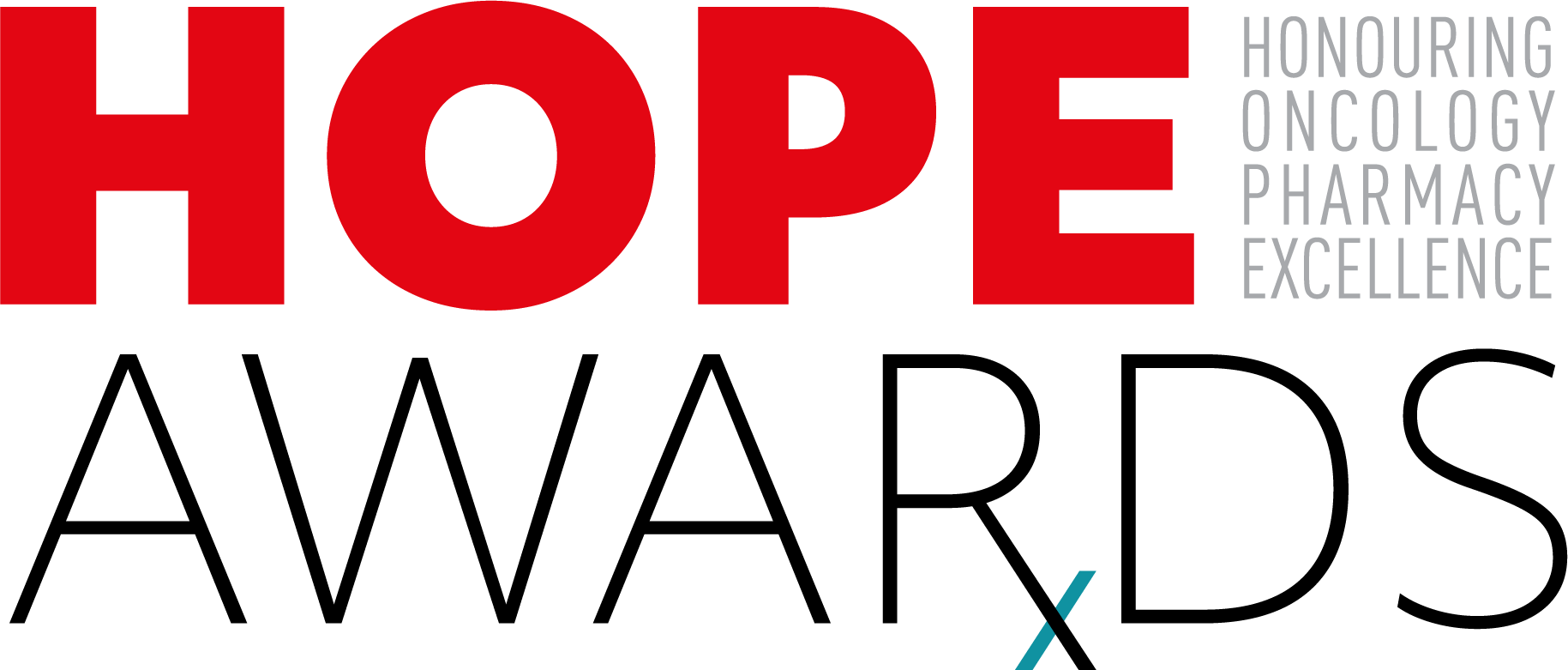SUSTAINABILITY AND EFFICIENCY
FIRST PLACE WINNERS:
Andrea Wist, Jessica Newport, Taylor Smith & Kaitlyn Matthew
Bluewater Health
Andrea Wist, Jessica Newport, Taylor Smith and Kaitlyn Matthew were awarded a 1st Place HOPE Award for their Sustainability and/or Efficiency efforts and project entitled ‘Chemo Wastage Study in a Non-Teaching Large Community Hospital Setting’.
Andrea and her team recognized both the financial burden to the healthcare system and concerns surrounding the environmental harm of the National Association of Pharmacy Regulatory Authorities (NAPRA) Model Standards regarding beyond use dating (BUD) of chemotherapy. They determined that they could extend the BUD by confirming the sterility of CSTD devices in their ISO Class 5 environment.
Design: RPhTs underwent third-party onsite re-certification to ensure proper handling of hazardous sterile materials. Eight test vials were used for the study and underwent specific storage conditions and volumes of liquid withdrawn. Following 7 days of withdrawals, vials were then incubated for 14 days to assess microbial growth. This process was repeated for five weeks, with a total of 40 vials.
Results: After the 7-day sampling period and 14 days of incubation, all samples were negative for signs of microbial growth. No differences were observed between vials stored at room temperature or under refrigeration during the sampling period. No differences were observed between vials that were accessed twice daily compared to once daily. The proven sterility of the CSTD allowed the pharmacy team to make the decision to extend the BUD of single-use chemotherapy drug vials from 6 hours, the current NAPRA guidelines, to 7 days.
Overall, the implementation of the BUD extension in summer 2023 is estimated to reduce the financial burden of wasted chemotherapy drugs by half of the previous fiscal year at Bluewater Health. Andrea and her team hope that this study encourages other smaller, non-teaching sites to implement similar approaches and greatly impact the environment and maximize the benefit of tax dollars spent on chemotherapy.
SUSTAINABILITY AND EFFICIENCY FIRST PLACE WINNERS:
Andrea Wist, Jessica Newport, Taylor Smith & Kaitlyn Matthew
Bluewater Health
Andrea Wist, Jessica Newport, Taylor Smith and Kaitlyn Matthew were awarded a 1st Place HOPE Award for their Sustainability and/or Efficiency efforts and project entitled ‘Chemo Wastage Study in a Non-Teaching Large Community Hospital Setting’.
Andrea and her team recognized both the financial burden to the healthcare system and concerns surrounding the environmental harm of the National Association of Pharmacy Regulatory Authorities (NAPRA) Model Standards regarding beyond use dating (BUD) of chemotherapy. They determined that they could extend the BUD by confirming the sterility of CSTD devices in their ISO Class 5 environment.
Design: RPhTs underwent third-party onsite re-certification to ensure proper handling of hazardous sterile materials. Eight test vials were used for the study and underwent specific storage conditions and volumes of liquid withdrawn. Following 7 days of withdrawals, vials were then incubated for 14 days to assess microbial growth. This process was repeated for five weeks, with a total of 40 vials.
Results: After the 7-day sampling period and 14 days of incubation, all samples were negative for signs of microbial growth. No differences were observed between vials stored at room temperature or under refrigeration during the sampling period. No differences were observed between vials that were accessed twice daily compared to once daily. The proven sterility of the CSTD allowed the pharmacy team to make the decision to extend the BUD of single-use chemotherapy drug vials from 6 hours, the current NAPRA guidelines, to 7 days.
Overall, the implementation of the BUD extension in summer 2023 is estimated to reduce the financial burden of wasted chemotherapy drugs by half of the previous fiscal year at Bluewater Health. Andrea and her team hope that this study encourages other smaller, non-teaching sites to implement similar approaches and greatly impact the environment and maximize the benefit of tax dollars spent on chemotherapy.
